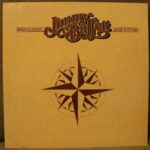Your Survival Guy’s been following Cal Newport for years. If you want to take the path less traveled, his writing is a good place to start. In The Wall Street Journal, Rachel Feintzeig discusses his book Slow Productivity. She writes:
You’re oh so busy. You’re on Slack and email and back-to-back Zoom calls, sometimes all at once. Are you actually getting real work done?
Cal Newport doesn’t think so.
“It’s like, wait a second, none of this mattered,” says the Georgetown University computer science professor and crusader for focus in a distracted age.
Newport, 41, says we can accomplish more by shedding the overload. He calls his solution “slow productivity”—and has a book by the same name—a way for high achievers to say yes to fewer things, do them better and even slack off in strategic doses. Top-notch quality is the goal, and frenetic activity the enemy.
This, he told me, is the thing that can save our jobs from AI and layoffs, and even make shareholders happy.
I had questions. Can we really be less is more at work, or have we grown addicted to constantly crossing endless tasks off our to-do lists? What will our bosses think?
After all, so many of us yearn for a burnout cure-all that will preserve our high-achiever status, and this isn’t the first you-can-have-it-all proposition we’ve heard. Champions of the four-day workweek promise we can ditch an entire workday just by working smarter. Remote-work die-hards swear it’s a win for employers and employees. Few dreams are more seductive than bidding goodbye to hustle culture, while still reaping the benefits of said hustle.
Newport acknowledges that saying no to preserve our productivity can be a delicate act. He knows that entrepreneurs have more flexibility, but says those of us who answer to managers can carve this out too. We might even find we have more power and value to our employers.
“You should take that value out for a little bit of a spin,” he suggests. He offers some pointers.
Less is more
The way we work now is a “serious economic drag,” Newport says. Knowledge workers have devolved into a form of productivity that’s more about the vibes—stressed!—than actually making money for the company. Data from Microsoft finds that lots of us spend the equivalent of two workdays a week on meetings and email alone.
One mistake we make, Newport says, is taking on too many projects, then getting bogged down in the administrative overload—talking about the work, coordinating with others—that each requires. Work becomes a string of planning meetings, waiting on someone from another department to give us a go-ahead.
Newport recommends giving priority to a couple projects, then bumping the others to a waiting list in order of importance. Make that list public, say, in a Google doc you share with bosses and colleagues.
“When workloads are obfuscated behind black boxes, it’s just people throwing stuff at each other, it’s very dangerous to say no,” Newport says.
If someone comes to you with more work, have them consider where it should go on your list, Newport says.
Action Line: It should be easy to understand that giving 100% of your attention to one purpose is of greater value than giving 5% of your attention to twenty separate goals. Attention simply isn’t divisible in that way. Give all of your attention to ensuring the best future for you and your family by clicking here to subscribe to my free monthly Survive & Thrive letter.
E.J. Smith - Your Survival Guy
Latest posts by E.J. Smith - Your Survival Guy (see all)
- Richard C. Young’s Intelligence Report: Beat Inertia - May 16, 2024
- To Your Health: Are You Interested in French Wine? - May 15, 2024
- How an American Came to Own a Legendary Vineyard in France - May 15, 2024
- What Happens When Leaders Don’t Learn the Lessons of the Past? - May 15, 2024
- Your Survival Guy’s Rich Advisor, Poor Advisor - May 14, 2024















